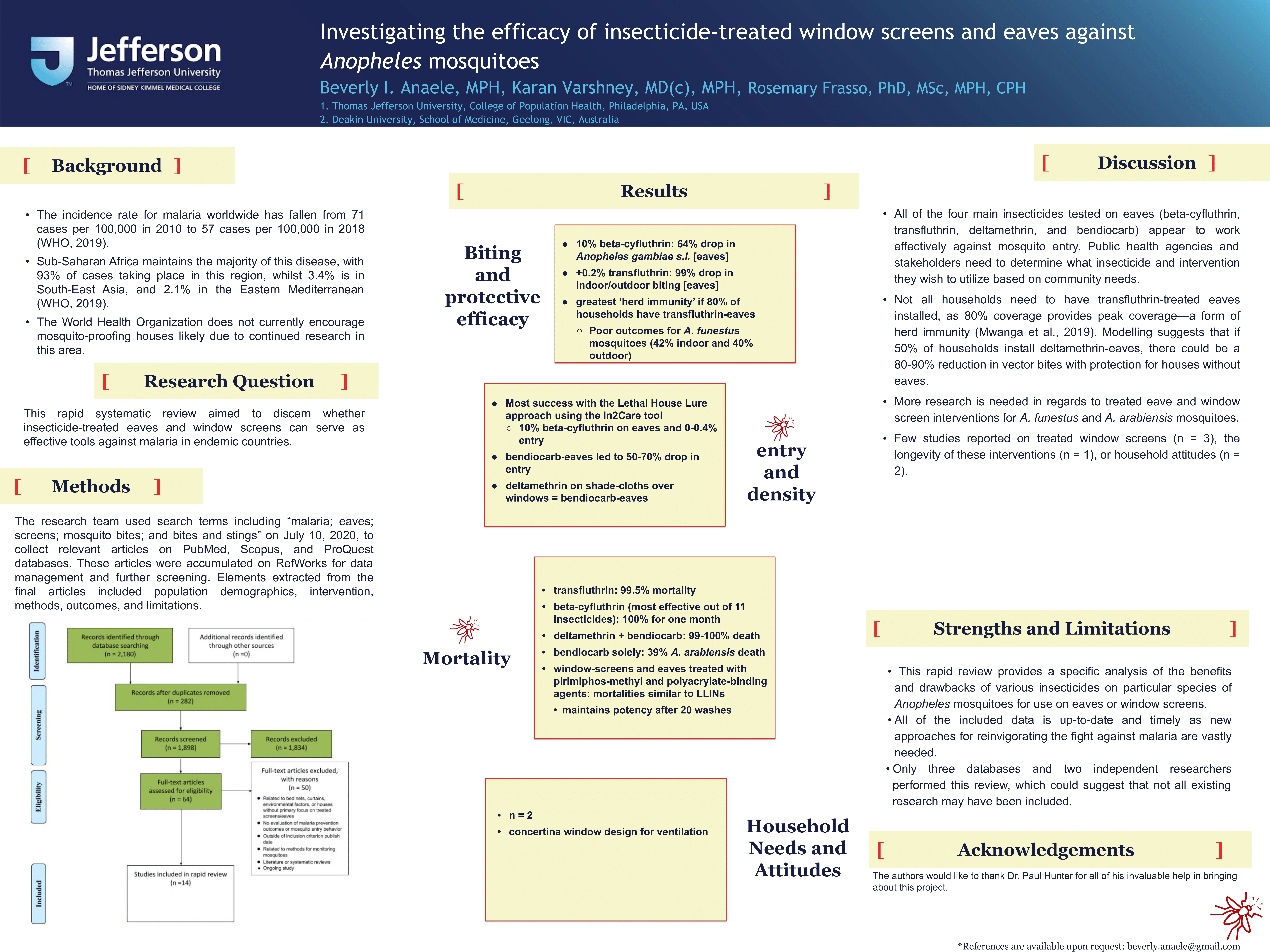Conference 2021 Poster Presentation
Project title
The efficacy of insecticide-treated window screens and eaves against Anopheles mosquitoes
Authors and Affiliations
Beverly I. Anaele1, Karan Varshney1, Rosemary Frasso1
1. College of Population Health, Thomas Jefferson University, Philadelphia, USA
Abstract
Background
Female mosquitoes serve as vectors for a host of illnesses, including malaria, spread by the Plasmodium parasite. Despite monumental strides in reducing the burden of malaria through tools like bed nets, the rate of these gains is slowing and may do so even further because of disruptions from the ongoing COVID-19 pandemic. To investigate added means of climbing over this hurdle, this systematic review examined the efficacy of insecticide-treated window screens or eaves to reduce Anopheles mosquito bites, mosquito entry, and prevalence.
Methods
Two reviewers independently searched PubMed, Scopus, and ProQuest databases on July 10, 2020 for peer-reviewed studies that were reported in English from malaria-endemic countries. These articles were also published between 2000-2020. Fourteen out of 2,180 articles were included in the final review.
Results
Eaves treated with beta-cyfluthrin, transfluthrin, or bendiocarb produce vast drops in blood-feeding, biting, or mosquito prevalence. Out of the three insecticides, transfluthrin-treated eaves were reported to have greater efficacy at reducing mosquito biting. Additionally, co-treating window screens and eaves with polyacrylate-binding agents (BA) and with pirimiphos-methyl (PM) have been shown to retain insecticidal potency after several washes.
Conclusions
The ensuing results from this systematic review suggest that there is value in using treated eave tubes or window screens. More data is needed to study the longevity of and household attitudes toward these interventions.

